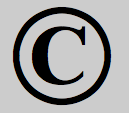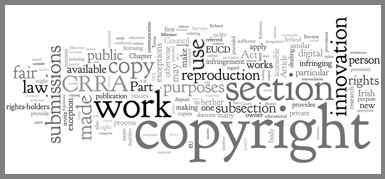2012 Symposium – Stanford Technology Law Review – First Amendment Challenges in the Digital Age
2012 Symposium
Audio recordings of the panels are now available at the above link
2012 Symposium
First Amendment Challenges in the Digital Age
Audio recordings of the panels are now available at the above link
Twitter Libel Actions in Three Jurisdictions – Courtney Love, Chris Cairns, Joseph Meggitt
19
02
2012
Three libel actions involving Twitter have been in the news around the world this week. The first is in the USA and involves Courtney Love (again). The second is due to be the first twitter libel trial – in England in two weeks’ time. Finally, in Australia there is news of a claim against Twitter Inc itself as the publisher of a defamatory tweet.
Times contempt challenge thrown out in Strasbourg – Adam Wagner
14
02
2012
In the case of Michael Seckerson v United Kingdom (App Nos. 32844/10 and 33510/10) the European Court of Human Rights rejected as “inadmissible” Times Newspapers’ challenge to its 2009 conviction for contempt of court. The decision, which was made by seven judges, is a good example of an early stage “strike-out” by the Court which is nonetheless a substantial, reasoned decision
This case demonstrates that prosecution for contempt for breach of the secrecy of the jury room is not incompatible with Article 10.
 One of the main issues on which the Copyright Review Committee invites submissions is whether there ought to be a Copyright Council of Ireland (the Council). The model which is proposed for discussion in the Consultation Paper would be an independent self-funding organisation, created by the Irish copyright community, recognised by the Minister, and based on principal objects that ensure the protection of copyright and the general public interest as well as encouraging innovation (update: you can download a pdf of the Paper here (via DJEI) or here (from this site)).
One of the main issues on which the Copyright Review Committee invites submissions is whether there ought to be a Copyright Council of Ireland (the Council). The model which is proposed for discussion in the Consultation Paper would be an independent self-funding organisation, created by the Irish copyright community, recognised by the Minister, and based on principal objects that ensure the protection of copyright and the general public interest as well as encouraging innovation (update: you can download a pdf of the Paper here (via DJEI) or here (from this site)).
The copyright communities in many other countries – such as Australia, New Zealand, and the United Kingdom – have established copyright councils. The functions of these copyright councils are very similar, representing the interests of their members, principally rights-holders and collecting societies. However, the model in the Paper goes considerably further, with a broadly-based subscribing membership, so that every interested member of the Irish copyright community (such as all of the various categories of person and organisation which made submissions to the Review) could be subscribing members of the Council if they wish to be. Such a body has the potential to be an important resource for the Irish copyright community and the general public, especially if it undertakes processes of public education on copyright, recommends standards of best practice, and gathers evidence to support the process of ongoing copyright reform.…
Data Protection for the 21st Century: The EU Reform Proposals
February 22nd, 2012
Timothy Pitt-Payne QC and Robin Hopkins spoke at the 11KBW Information law seminar; Data Protection for the 21st Century: The EU Reform Proposals on 21st February 2012. The papers from this seminar are now available to download – click here
 The main focus of the Terms of Reference of the Copyright Review Committee is upon the barriers to innovation, if any, created by Irish copyright law; and this was reflected in the submissions which the Committee received (update: you can download a pdf of the Paper here (via DJEI) or here (from this site)). After an introductory chapter 1, chapter 2 of the Copyright Review Committee’s Consultation Paper (published yesterday) sets out what the Committee understood by innovation (section 2.2), it briefly outlined some salient features of Irish copyright law (section 2.3), and the points in the previous two sections were applied to a classification of the submissions received (section 2.4).
The main focus of the Terms of Reference of the Copyright Review Committee is upon the barriers to innovation, if any, created by Irish copyright law; and this was reflected in the submissions which the Committee received (update: you can download a pdf of the Paper here (via DJEI) or here (from this site)). After an introductory chapter 1, chapter 2 of the Copyright Review Committee’s Consultation Paper (published yesterday) sets out what the Committee understood by innovation (section 2.2), it briefly outlined some salient features of Irish copyright law (section 2.3), and the points in the previous two sections were applied to a classification of the submissions received (section 2.4).
In the Paper, the Committee construe “innovation” and its connections with copyright fairly broadly. Whilst the Committee has regard to innovation, creativity, ingenuity, renewal and transformation in all of their forms – artistic, cultural, educational and social, as well as economic – nevertheless, much public policy is now being driven by “innovation” in the sense of the development of new businesses, products and technologies. For example, the Organisation of Economic Co-Operation and Development (OECD) understands the process of innovation (pdf)
…as the implementation of a new or significantly improved product (good or service), or process, a new marketing method, or a new organisational method in business practices, work-place organisation or external relations … [which must therefore] by definition, contain a degree of novelty.
 In the press release announcing the publication of the Copyright Review Committee Consultation Paper mentioned in my previous post (and which I hope will be discussed on twitter at the hashtag #CRC12), the Minister also announced the signing into law of the European Union (Copyright and Related Rights) Regulations 2012 (SI No 59 of 2012). This Statutory Instrument (SI) relates to the availability of injunctions by rights-holders against intermediaries to prevent copyright infringement by the intermediaries’ customers (which has the twitter hashtag #sopaIreland). I cannot stress enough that this issue is separate and distinct from the work of the Committee, and is not dealt with in the Paper. In other words, as the title to this post says, #CRC12 is not #sopaireland. Much has been written already about the SI when it was in draft form; and doubtless more will be said now that it has been brought into force. However, it was not within the remit of the Committee, and I hope the parallel publication of the SI and the Paper does not detract from the issues canvassed in our Paper (update: you can download a pdf of the Paper here (via DJEI) or here (from this site)).…
In the press release announcing the publication of the Copyright Review Committee Consultation Paper mentioned in my previous post (and which I hope will be discussed on twitter at the hashtag #CRC12), the Minister also announced the signing into law of the European Union (Copyright and Related Rights) Regulations 2012 (SI No 59 of 2012). This Statutory Instrument (SI) relates to the availability of injunctions by rights-holders against intermediaries to prevent copyright infringement by the intermediaries’ customers (which has the twitter hashtag #sopaIreland). I cannot stress enough that this issue is separate and distinct from the work of the Committee, and is not dealt with in the Paper. In other words, as the title to this post says, #CRC12 is not #sopaireland. Much has been written already about the SI when it was in draft form; and doubtless more will be said now that it has been brought into force. However, it was not within the remit of the Committee, and I hope the parallel publication of the SI and the Paper does not detract from the issues canvassed in our Paper (update: you can download a pdf of the Paper here (via DJEI) or here (from this site)).…
 |
As regular readers of this blog will know, last Summer, to maximise the potential of digital industry in Ireland, the Minister for Jobs, Enterprise and Innovation, Richard Bruton TD, set up the Copyright Review Committee to identify any areas of Irish copyright legislation that might create barriers to innovation and to make recommendations to resolve any problems identified. Our Consultation Paper has just been published on the the Department’s website (and it’s also available for download here (pdf)). Welcoming the Paper, the Minister of State with responsibility for Research and Innovation at the Department of Enterprise, Jobs and Innovation, Seán Sherlock TD, said
I am committed to reviewing and updating the Copyright legislation currently in place in order to strike the correct balance between encouraging innovation and protecting creativity. This paper has been prepared by the Copyright Review Committee in response to submissions received and public engagement. I urge all interested parties, including information providers and ISPs, innovators, rights holders, consumers and end-users, to study it carefully and engage in a constructive debate on all the issues.
As to what is in the Paper, the wordle above gives a good sense of the frequency with which various words are used in it.…
© cearta.ie 2024. Powered by WordPress